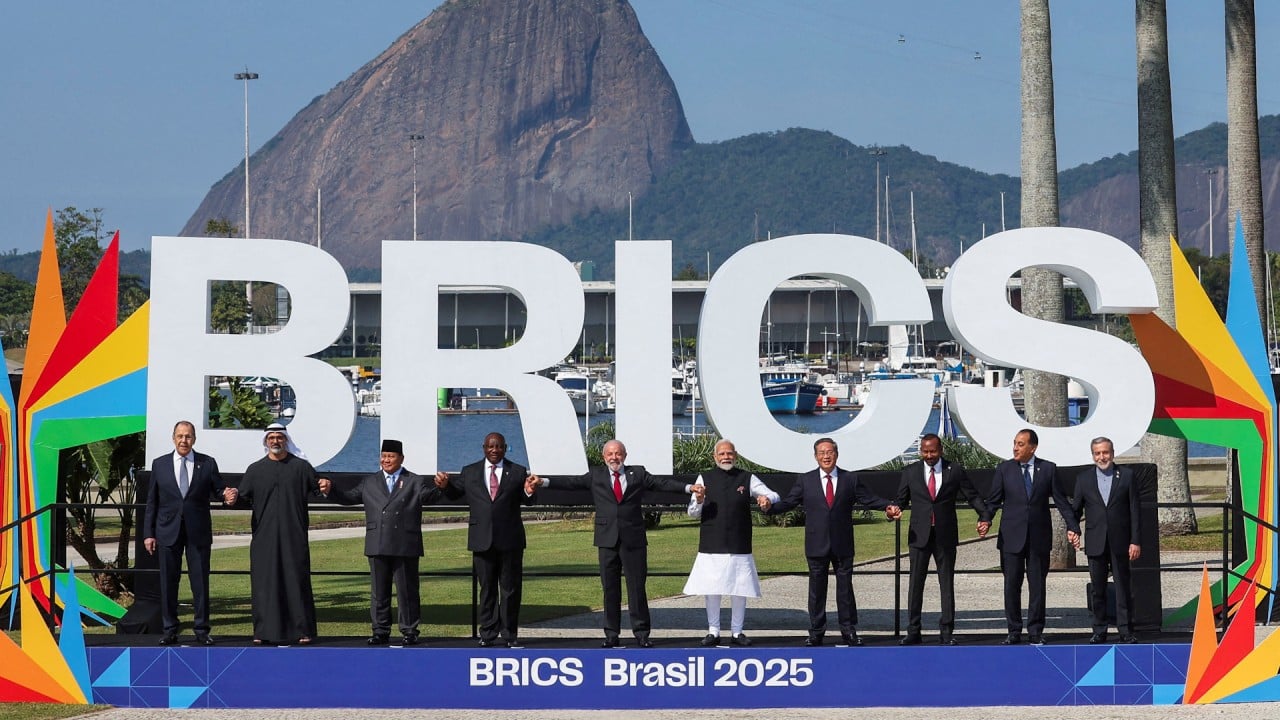Articles in this Cluster
07-07-2025
Asia-Pacific markets traded mixed on Monday following U.S. President Donald Trump's confirmation that "reciprocal" tariffs would take effect on August 1 for countries that haven't struck a trade deal. Trump's announcement led to a decline in U.S. stock futures, with Dow Jones Industrial Average futures sliding 0.32%, S&P 500 futures dipping 0.39%, and Nasdaq 100 futures falling 0.42%. Japan's Nikkei 225 slipped 0.53%, while Australia's S&P/ASX 200 slid 0.11%. Hong Kong's Hang Seng index lost 0.61%, and mainland China's CSI 300 dipped 0.12%. South Korea's Kospi added 0.19%. The Reserve Bank of Australia is expected to cut interest rates by 25 basis points to 3.60% during its two-day meeting. Trump also announced an additional 10% tariff on countries "aligning themselves with the anti-American policies of BRICS." Oil prices fell after OPEC+ agreed to increase crude production by 548,000 barrels per day.
07-07-2025
The uncertainty surrounding US tariffs has led several companies to rethink their global supply chains. Learning Resources, a US toymaker, saw its import taxes bill jump from $2.5m to over $100m after Trump's tariffs on Chinese imports were introduced, and has since moved 16% of its manufacturing to Vietnam and India. Other companies, such as Canadian fried chicken chain Cluck Clucks, have been impacted by tariffs on US imports and have had to limit their menus or consider passing on costs to consumers. Global supply chain expert Les Brand notes that switching production to new countries is expensive and difficult, requiring significant research, quality testing, and training. Many businesses are now looking to diversify their supply chains and reduce their reliance on countries with high tariffs, with some considering alternative markets or adjusting their products to avoid tariffs.
07-07-2025
U.S. stock futures fell as President Donald Trump announced tariffs would take effect on August 1, with an additional 10% tariff on countries aligned with BRICS. OPEC+ members agreed to increase oil output by 548,000 barrels per day. Meanwhile, Elon Musk formed a new U.S. political party called the "American Party," sparking criticism from Trump. European banks may struggle to maintain momentum despite recent outperformance. The private credit industry has grown to $1.7 trillion, raising concerns about potential systemic risk.
07-07-2025
European stocks are expected to open mixed, with Stoxx 50 futures up 0.1%, FTSE 100 futures down 0.2%, and DAX futures up 0.2%. The market is reacting to news that China has retaliated against the EU's ban on Chinese firms competing for medical device tenders by restricting government purchases of EU medical devices. Meanwhile, US President Donald Trump has threatened to impose an additional 10% tariff on countries aligning with BRICS' "Anti-American" policies. Other news includes Octopus Energy's planned £10 billion demerger of its technology arm Kraken.
07-07-2025
U.S. stock futures fell on Sunday as President Donald Trump announced that tariffs on certain countries will go into effect on August 1, not July 9, and threatened an additional 10% tariff on countries aligning with BRICS' "anti-American policies." Dow Jones Industrial Average futures slid 142 points, or 0.31%, while S&P 500 and Nasdaq 100 futures dipped 0.47% and 0.56%, respectively. The news follows a winning week for Wall Street, with the S&P 500 and Nasdaq Composite closing at all-time highs on Friday. Investors are now concerned about potential market volatility as trade updates emerge from the White House.
07-07-2025
US President Donald Trump has announced that countries aligning with the BRICS bloc will face an additional 10% tariff, citing their "anti-American policies." The BRICS group, currently meeting in Rio de Janeiro, Brazil, recently released a joint statement criticizing Trump's tariff policies, warning against "unjustified unilateral protectionist measures" and "trade-restrictive actions" that threaten the global economy. Trump's announcement did not specify which BRICS policies he was referring to, but analysts suggest it may be related to the group's goal of challenging Western-dominated global economic governance and reducing the US dollar's influence. The US has also delayed implementing tariffs announced in April until August 1 for countries that have not reached a deal with Washington.
07-07-2025
Chinese Premier Li Qiang has urged Brics nations to take collective action and lead reforms in global governance amid the threat of higher US tariffs, as a temporary tariff truce with the US is set to expire. Li called on member states to uphold independence, show responsibility, and build consensus to challenge the Western-led world order and promote peace and stability.
07-07-2025
Taiwan's ruling party, led by President Lai Ching-te, aims to reduce the island's economic dependence on China by decoupling its semiconductor industry from Chinese companies. The government has introduced new regulations requiring Taiwanese businesses to obtain licenses to sell products to China's key tech companies, Huawei and SMIC. This move aligns with the US goal of limiting China's access to advanced chips. However, analysts warn that completely decoupling the two economies would be challenging, as China remains Taiwan's largest export market, and many Taiwanese companies have significant investments in China. Taiwan's biggest companies, including TSMC and Foxconn, have grown through manufacturing investments in China, and shifting away from China could come at a high economic cost. Despite this, some Taiwanese firms have begun to diversify their investments, and the government is seeking to strengthen ties with the US and other democratic countries.
07-07-2025
The US and Vietnam have reached a trade agreement, with the US imposing a 20% tariff on Vietnamese exports, down from a previously threatened 46%. However, a 40% tariff will remain on "transshipments," products with Chinese input, aimed at preventing Chinese companies from avoiding US tariffs. The deal's implications are uncertain, as the definition of "transshipment" is unclear, and businesses worry that it could be defined too broadly, unfairly targeting many goods. The agreement is seen as a way for the US to pressure China, with Vietnam caught in the middle, balancing its relations with both the US and China. The deal's impact on Vietnam's manufacturing industry, which is closely tied to both countries, remains to be seen.
